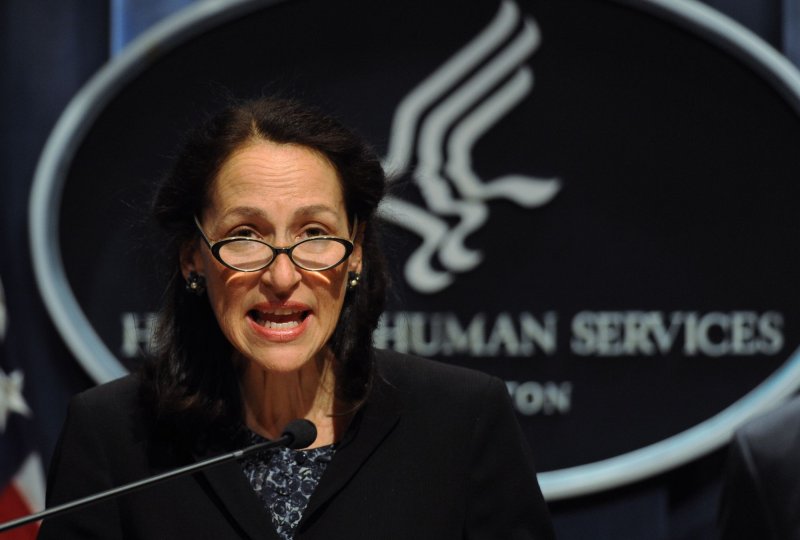180 days to comment on FDA rule on 'antibacterial' soap.
Food and Drug Administration Commissioner Margaret Hamburg. UPI/Roger L. Wollenberg |
License Photo
WASHINGTON, Dec. 17 (UPI) -- There is no evidence showing over-the-counter antibacterial soap products are any more effective at preventing illness than plain soap and water, officials say.
Colleen Rogers, a lead microbiologist at the Food and Drug Administration, says antibacterial soap products contain chemical ingredients, such as triclosan and triclocarban, which might carry unnecessary risks given that their benefits are unproven.
"New data suggest that the risks associated with long-term, daily use of antibacterial soaps may outweigh the benefits," Rogers says in a statement.
There are indications that certain ingredients in these soaps may contribute to bacterial resistance to antibiotics, and may have unanticipated hormonal effects that are of concern to FDA, Rogers says.
In light of these data, the agency issued a proposed rule Monday that would require manufacturers to provide more substantial data to demonstrate the safety and effectiveness of antibacterial soaps. The proposed rule covers only those consumer antibacterial soaps and body washes that are used with water.
It does not apply to hand sanitizers, hand wipes or antibacterial soaps that are used in health care settings such as hospitals, Rogers says.
The laboratory tests that have historically been used to evaluate the effectiveness of antibacterial soaps do not directly test the effect of a product on infection rates, Rogers says.
That would change with FDA's current proposal, which would require studies that directly test the ability of an antibacterial soap to provide a clinical benefit over washing with non-antibacterial soap, Rogers says.
FDA encourages consumers, clinicians, environmental groups, scientists, industry representatives and others to discuss and weigh in on the proposed rule and the data it discusses. The comment period extends for 180 days.
To comment see: https://www.federalregister.gov/articles/2013/12/17/2013-29814/safety-and-effectiveness-of-consumer-antiseptics-topical-antimicrobial-drug-products-for.















